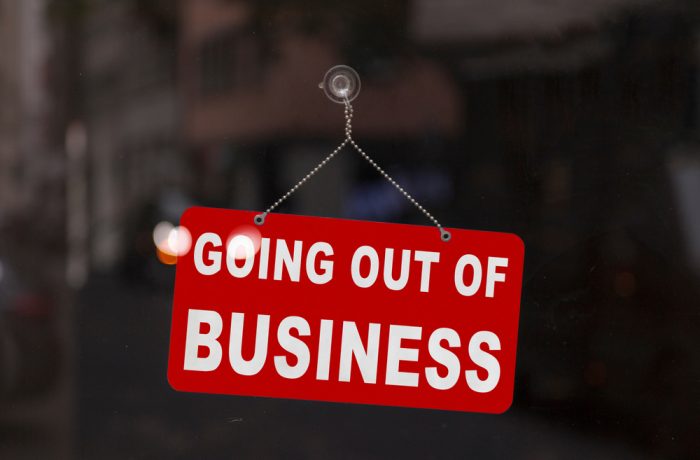Bankruptcy, often seen as a financial catastrophe, can actually be a lifeline for many drowning in overwhelming debt. It’s important to acknowledge that bankruptcy can be an emotionally challenging process. It can feel like a failure, a sign that you’ve lost control of your finances. But it’s crucial to understand that bankruptcy is not the end of the road. It’s a fresh start, a chance to reset and rebuild towards financial recovery. In this essay, we’ll delve into how individual bankruptcy affects a person’s credit score and their ability to secure loans, shedding light on why bankruptcy can be a reasonable option for those facing insurmountable debt.
Firstly, it’s crucial to understand what bankruptcy entails. Bankruptcy is a legal process that relieves individuals or businesses from their debts while offering creditors an opportunity to receive some repayment based on their assets. Individuals typically file for either Chapter 7 or Chapter 13 bankruptcy, each with its implications for credit scores and future borrowing.
Chapter 7 bankruptcy, or liquidation bankruptcy, involves liquidating assets to pay off debts. While this may sound drastic, it allows individuals to clean the slate of most unsecured debts, such as credit card balances and medical bills. On the other hand, Chapter 13 bankruptcy involves creating a repayment plan to gradually pay off debts over three to five years, allowing individuals to retain their assets while working towards debt resolution.
Now, let’s address the elephant in the room—how does bankruptcy affect one’s credit score? It’s indisputable that filing for bankruptcy will hurt your credit score initially. However, the extent of this impact and its duration vary depending on individual circumstances and the type of bankruptcy filed.
Chapter 7 bankruptcy typically remains on your credit report for ten years from the filing date, while Chapter 13 bankruptcy stays for seven years. During this time, your credit score may plummet, making obtaining new lines of credit or loans challenging. However, contrary to popular belief, bankruptcy is not a permanent stain on your credit history.
For many individuals drowning in debt, declaring bankruptcy can be the first step towards rebuilding their credit. By eliminating or restructuring debts through bankruptcy, individuals can start anew, free from the burden of unmanageable financial obligations. For instance, in a Chapter 7 bankruptcy, most unsecured debts, such as credit card balances and medical bills, can be discharged, meaning you no longer have to pay them. While it may take time and effort, the process of diligently rebuilding credit post-bankruptcy is entirely feasible. It’s a journey that, with determination and the right strategies, can lead to a stronger and more stable financial future.
Financial advisors and bankruptcy lawyers are not just professionals but your guides and support system through the bankruptcy process and its aftermath. They can provide invaluable insights into rebuilding credit, managing finances responsibly, and navigating the complexities of bankruptcy laws. Their expertise and guidance can make the journey less daunting and more manageable. For instance, they can help you understand the different types of bankruptcy, assess your financial situation, and guide you through the process of filing for bankruptcy. They can also help you develop a plan for rebuilding your credit and managing your finances after bankruptcy.
Moreover, it’s essential to recognize that bankruptcy is not a one-size-fits-all solution. It’s a decision that should be made after careful consideration of your financial situation, long-term goals, and available alternatives. For instance, if you have a steady income and can afford to repay your debts over time, a Chapter 13 bankruptcy might be a better option for you. On the other hand, if you have little to no income and no assets, a Chapter 7 bankruptcy might be the best way to get a fresh start. While bankruptcy may not be the ideal outcome, it can offer a path to financial freedom for those overwhelmed by debt.
Ultimately, while declaring bankruptcy can significantly impact one’s credit score and ability to obtain loans in the future, it’s not the end of the road. Instead, it’s a fresh start toward financial recovery and stability. By understanding the implications of bankruptcy, seeking guidance from financial experts, and diligently rebuilding credit, individuals can emerge stronger and more resilient on the other side of bankruptcy. For bankruptcy lawyers and financial advisors, providing support and guidance to clients navigating the bankruptcy process is about mitigating financial losses and helping individuals reclaim their financial independence and rebuild their lives.
Guidance
Bankruptcy is not the end, it’s a new beginning. Give yourself the opportunity of a fresh start. Contact the Bankruptcy Law Firm of Figeroux & Associates today. Call 855-768-8845 or visit www.askthelawyer.us to book a consultation. The lawyer you hire does make a difference!





